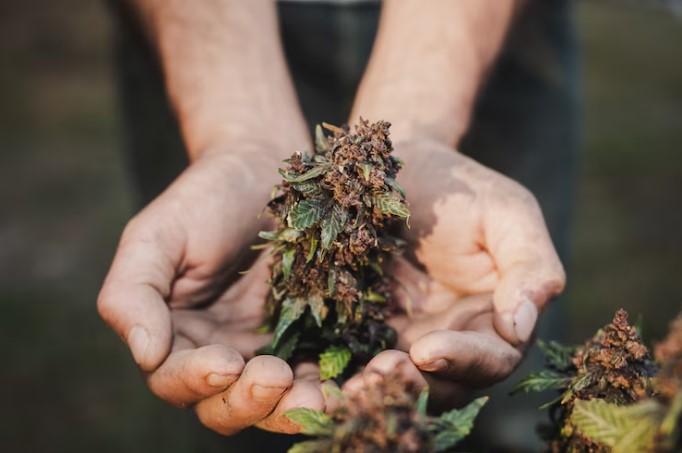
Understanding Common Skin Conditions and Their Impact
Skin conditions such as eczema, psoriasis, and acne affect millions of people worldwide, causing discomfort, embarrassment, and diminished quality of life. These conditions can manifest in various forms, ranging from dry, itchy patches (eczema) to red, scaly plaques (psoriasis) and inflamed, clogged pores (acne). While the underlying causes of these skin conditions may vary, they often share common characteristics such as inflammation, immune dysregulation, and impaired skin barrier function.
Eczema, also known as atopic dermatitis, is a chronic inflammatory skin condition characterized by dry, itchy, and inflamed skin patches. Psoriasis is an autoimmune disorder characterized by the rapid proliferation of skin cells, resulting in red, scaly plaques and patches. Acne is a common skin condition characterized by the formation of pimples, blackheads, whiteheads, and cysts due to excess sebum production, inflammation, and bacterial overgrowth.
These skin conditions can have a significant impact on physical and emotional well-being, affecting self-esteem, body image, and social interactions. While various treatments are available for managing these conditions, including topical steroids, immunosuppressants, and antibiotics, many individuals seek alternative or complementary therapies to alleviate symptoms and improve skin health.
Exploring the Potential Benefits of CBD for Skin Health
- Anti-Inflammatory Properties: One of the primary mechanisms by which CBD may benefit skin conditions is its anti-inflammatory properties. CBD has been shown to modulate inflammatory responses in the body by interacting with cannabinoid receptors (CB2) and inhibiting the production of pro-inflammatory cytokines. By reducing inflammation, CBD may help alleviate symptoms such as redness, itching, and swelling associated with eczema, psoriasis, and acne.
- Balancing Sebum Production: CBD may also help regulate sebum production in the skin, making it beneficial for individuals with acne-prone skin. Excessive sebum production can clog pores and contribute to the development of acne lesions. CBD has been shown to inhibit sebocyte proliferation and reduce sebum production by interacting with cannabinoid receptors in the skin. By balancing sebum production, CBD may help prevent the formation of acne lesions and promote clearer, healthier-looking skin.
- Antimicrobial Effects: CBD exhibits antimicrobial properties, making it effective against bacteria, fungi, and other microorganisms that can contribute to skin infections and inflammation. Studies have shown that CBD can inhibit the growth of acne-causing bacteria such as Propionibacterium acnes and Staphylococcus aureus, reducing the risk of infection and promoting skin healing. Additionally, CBD’s antimicrobial effects may help prevent secondary infections and complications in individuals with eczema or psoriasis.
- Moisturizing and Hydrating Effects: CBD contains fatty acids and other nutrients that help nourish and hydrate the skin, making it beneficial for individuals with dry or irritated skin conditions such as eczema and psoriasis. CBD-infused skincare products such as lotions, creams, and balms can help replenish moisture, soothe inflammation, and restore the skin’s natural barrier function. By moisturizing and hydrating the skin, CBD promotes healing, reduces itching, and enhances overall skin health and appearance.
- Antioxidant Properties: CBD is a potent antioxidant, capable of neutralizing free radicals and oxidative stress that contribute to skin aging and damage. By scavenging free radicals and reducing oxidative stress, CBD helps protect skin cells from damage, promote collagen production, and prevent premature aging. Additionally, CBD’s antioxidant properties may help reduce inflammation and redness associated with skin conditions such as eczema and psoriasis, promoting calmer, healthier-looking skin.
- Promoting Skin Regeneration and Healing: CBD may also promote skin regeneration and wound healing, making it beneficial for individuals with damaged or compromised skin. CBD stimulates the proliferation of skin cells and promotes the production of collagen and elastin, essential proteins that support skin structure and elasticity. By accelerating skin regeneration and healing, CBD can help improve the appearance of scars, reduce inflammation, and promote overall skin health and resilience.
In conclusion, CBD shows promise as a potential therapeutic option for managing common skin conditions such as eczema, psoriasis, and acne. Its anti-inflammatory, sebum-regulating, antimicrobial, moisturizing, antioxidant, and skin-regenerative properties make it a versatile and effective ingredient for skincare products targeting these conditions. Whether used topically as part of a skincare routine or ingested orally for systemic effects, CBD offers a natural and holistic approach to supporting skin health and addressing the underlying causes of skin conditions. As with any skincare regimen, it’s essential to choose high-quality CBD products from reputable brands and consult with a dermatologist or healthcare professional for personalized recommendations and guidance. With continued research and innovation, CBD may emerge as a valuable tool for promoting healthier, happier skin for individuals of all ages and skin types.
